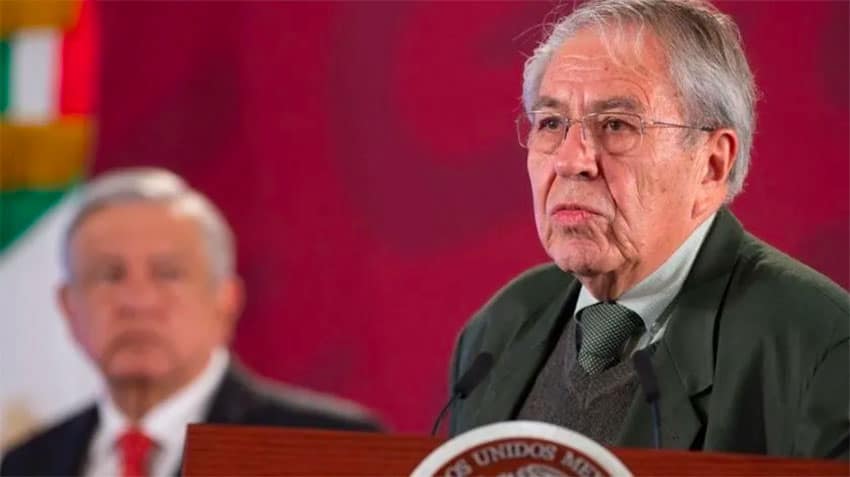Five years after the fact, the government has acknowledged that Mexico’s largest mining company did not live up to an agreement to compensate victims of a toxic spill.
Grupo México failed to fulfill its commitments to the victims of the 2014 spill into two rivers in Sonora, Health Secretary Jorge Alcocer said on Monday.
Speaking at the president’s regular news conference, Alcocer said the company didn’t keep its pledge to invest in healthcare services so that spill victims could access the medical treatment they require.
“. . . Nothing has been done for the health of [affected] people and animals,” he said.
Alcocer also said that Grupo México, the world’s third largest copper miner, didn’t fulfill its commitment to remedy the environmental damage caused by the spill, a complaint already made by residents of affected communities.
More than 40,000 cubic meters of toxic substances, particularly copper sulfate acid solution, spilled into the Sonora and Bacanuchi rivers on August 6, 2014, at the Buenavista copper mine in Cananea.
Thousands of people in seven municipalities were affected by the spill, which federal environmental officials described as “the worst environmental disaster” in the history of Mexican mining.
People in the municipality of Ures were among the worst affected. Alcocer said that 382 people have been confirmed as having health problems related to the spill but suggested that the real number could be over 1,000.
In light of Grupo México’s failure to keep its word, all three levels of government will participate in the implementation of a new monitoring plan to ensure that spill victims receive the medical care they need, Alcocer said.
“It will be a 15-year . . . plan,” he said, adding that programs and policies implemented by Grupo México will be assessed on an annual basis.
The health secretary said that a meeting attended by authorities, citizens, spill victims, academics and representatives of Grupo México was held last week, when a number of demands were presented.

People in areas of Sonora affected by the spill want the Ures hospital to be fitted out with modern equipment and all municipal health clinics to be upgraded.
They also said more medical personnel, including specialists, are needed to treat people suffering from spill-related illnesses – which include cancer as well as liver, kidney and pancreas problems – and that the supply of medicines needs to improve.
Alcocer said that more than 7 million pesos (US $369,000) is needed to pay for the medical personnel needed at the Ures hospital.
Surgeons, anesthesiologists, pediatricians, psychologists, psychiatrists, general practitioners and nurses are all required, he said, explaining that people were affected both physically and mentally by the spill.
He explained that another demand from residents was for the federal government to take control of Grupo México’s trust fund, which was created to remedy environmental problems caused by the spill and pay for compensation.
The 2-billion-peso trust was established after the spill in 2014 but was shut down in February 2017 with only 1.2 billion pesos having been spent.
For his part, President López Obrador pledged that the government will ensure that the spill-related healthcare and environmental problems are dealt with “in a comprehensive way.”
People will receive the medical care they require and the Ures hospital will be equipped to attend to the needs of the population it serves, he said.
“We’re not going to stop at the diagnosis of the problem . . . we will be taking action,” the president declared.
Source: Notimex (sp), El Imparcial (sp)
